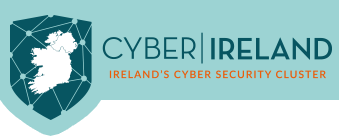The Cyber Ireland position paper, ’Achieving our Cyber Potential 2030’, outlined the strengths of the sector, our cyber opportunity and key barriers to growth. It made recommendations to address these challenges and realise our cyber potential, which requires state support and intervention, comprising:
- Government as a Coordinator, Catalyst and Accelerator of the cyber security sector.
- Supports to scale the domestic cyber security industry.
- Developing a pipeline of cyber security talent, to train and attract 1,000 cyber security professionals each year.
- Building a Cyber Security R&D Ecosystem and investment in a national research and development centre.
Without state support and leadership across these areas, we will not realise the sector’s potential, which is competing with other countries that have stronger state support and investment for a number of years ahead of Ireland, such as the United States of America, United Kingdom, Australia, Netherlands, Israel and Estonia. These leading cyber security regions have prioritised and invested in the development of their cyber security sectors and are reaping the benefits of a strong domestic sector that is internationally competitive and securing their nation.
The key barriers to growth for the cyber security industry in Ireland outlined in ‘Achieving our Cyber Potential 2030’ are:
- Skills Shortages: 66% of firms surveyed have skills, recruitment or retention issues.
- Investment: 26% of firms face issues with raising or securing finance (expansion, scale, larger clients, cash flow)
- Domestic Sector: High number of micro-enterprises and lack of scale to be internationally competitive.
- Lack of R&D capabilities, coordination, and investment.
If the state does not intervene and support our cyber security sector, existing barriers to growth will not be addressed, resulting in a less internationally competitive sector. Furthermore, it will impact the cyber resilience of our businesses, government and society.
Cyber Ireland, the national cyber security cluster organisation representing the sector with 180 member organisations nationwide welcomes the development of Ireland’s first cyber industrial strategy.
A long-term, shared vision for the cyber security sector realising its potential is required with buy-in from across the ecosystem: government, industry, education and research, entrepreneurs and investors, not-for-profits and society. This vision requires a strategy with the required investment and whole of government support from all relevant departments and agencies.
The suggested key pillars of (a) Skills, (b) Research and Innovation, and (c) Indigenous Industry must address existing barriers to growth for industry, while also considering future challenges and opportunities.
The European Union’s (EU) ambition to become the largest digital market in the world is underpinned by cyber security, and the EU is taking an increasingly central role with new regulations for cyber security.
A strategy is required to address the impact of EU regulations and ‘technological sovereignty’ on non-EU multi-national companies (MNCs) based in Ireland, so that we can continue to grow and attract foreign direct investment (FDI) in cyber security to build on strengths and remain internationally competitive.
EU regulations provide a massive opportunity for Irish cyber security companies, as well as Irish companies with secure digital solutions, to service the EU market. First mover advantage is key, and we must prepare Irish companies to proactively adapt to these regulations to realise this market opportunity.
Investing in cyber security is unique amongst supporting industrial development and technology spend as it not only delivers return for the cyber security sector, it also secures and enables our digital economy our digital society. In doing so, this will generate 5 to 10X orders of magnitude of return on state investment.

